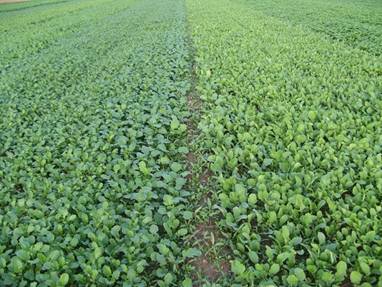Duchy Future Farming Programme
The Duchy Future Farming programme supports innovation in sustainable agriculture. The programme will help British farmers identify and adopt practices that improve their productivity in an environmentally responsible way.
Towards a sustainable and productive EU organic greenhouse horticulture
To improve and disseminate knowledge for new and better production strategies, methods and technologies to support sustainable and productive organic greenhouse/protected horticulture in the EU
Optimise Subsidiary Crop Application in Rotations
OSCAR studies key factors influencing the success of cover cropping, incl. cultivation methods, machinery and suitable plant genotypes. It develops targeted systems for varied conditions in Europe and assesses them in organic and conventional agriculture.
Potato virus Y: epidemiology, control and virus-host interactions
The project conducts a monitoring programme for Potato virus Y and its vectors in Northern Finland in order to design viable virus control options for seed potato production.
Using legume-based mixtures to enhance the nitrogen use efficiency and economic viability of cropping systems.
The three year collaborative project aims to improve soil fertility building in leys by developing targeted species mixtures of green manures, in particular nitrogen-fixing legumes.
New approaches to weed control in oilseed rape
The project tests weed control within the inter-row spacing of oilseed rape using various techniques. This includes positioning systems (e.g. vision-guided) and weed control methods (e.g. chemical and mechanical).
Harnessing new technologies for sustainable oat production and utilization
This project integrates various breeding and selection methods with high throughput analysis of grain composition to develop oats varieties for human consumption, livestock production and industrial uses.
Adaptive winter wheat populations: development, genetic characterisation and application
We study the yield, quality, and stability of wheat Composite Cross Populations (CCPs) under high and low input over a range of environments through phenotypic and genotypic analyses and develop the processing capabilities of CCPs for various end users.




